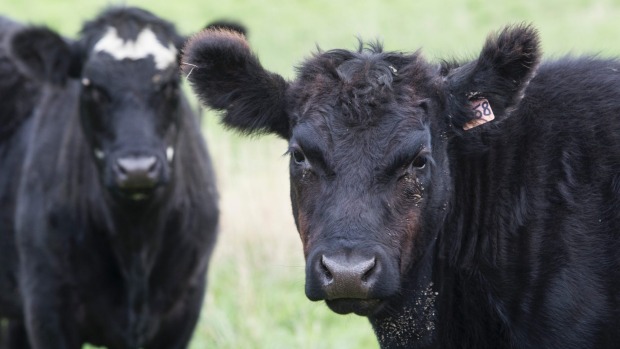 |
| Reviews and Templates for Expression We |
Fatter, less flatulent cows good for planet, and for farmers

Cows could be belching out one-third less methane in five years' time, thanks to a new food additive.
New feeds that make cows less flatulent are a discovery that could truly save the world.
The methane produced in the stomachs of ruminant animals including cows, sheep and deer is a powerful greenhouse gas. In New Zealand, agriculture comprises nearly half of our rising gas emissions.
A global search is on to find ways to reduce the amount of methane produced by farm stock, and a Kiwi researcher is part of the team behind what may be the first solution.
Research co-authored by Matthew Deighton, published in the Proceedings of the National Academy of Sciences journal last week, found a new stock feed additive, NOP, cuts the methane produced by cows by almost a third.
It interferes with an enzyme in the methane-producing micro-organisms in the cow's stomach. "It's a very, very small amount – as little as one gram – in the daily feed of a cow. So that means it really has the opportunity to get on to farms, as we don't have to drastically change the diet of the animals."
Even more excitingly, the addition of NOP allowed the cows to put on extra weight, which was good news for farmers, Deighton said.
"That's really exciting. It was great that we could see a production benefit as well, because that might make it profitable for farmers to include it in their farm system, besides the obvious benefit of reducing greenhouse gas emissions," he said.
"And really critically we've seen it persisted for 12 weeks. Other additives in the diet haven't worked for as long."
The team thought perhaps the energy from grass, once lost as methane, might now be digested by the cow, causing it to put on more weight, he said.
Federated Farmers climate change spokesman Anders Crofoot said an affordable final product from these results would get a lot of interest from farmers. "It's a win-win: better for the environment and better for production."
Extra long-term studies would need to be done to ensure the safety and effectiveness of the food additive on grazing cows. But all going well, Deighton thought NOP might be used on farms within five years.
NOP, being a food additive, was different from the other well-known greenhouse gas-reducing compound, DCD. DCD, once an ingredient in fertilisers, reduced nitrous oxide production on farmland, but its use was stopped after traces were found in milk.
The new ingredient did not have any effect on milk composition or production, Deighton said. "Before NOP can be used on commercial farms it will have to get government regulatory approval to do so. It will have to pass residue testing in meat and milk."
NOP was developed by a Swiss company, and tested by an international team, including Deighton, in the United States.
|
|
|
|
Copyright 2011 Energy and Technical Services Ltd. All Rights Reserved. Energyts.com |